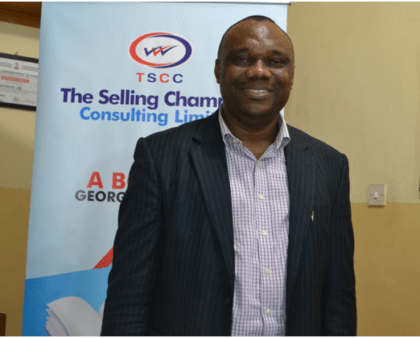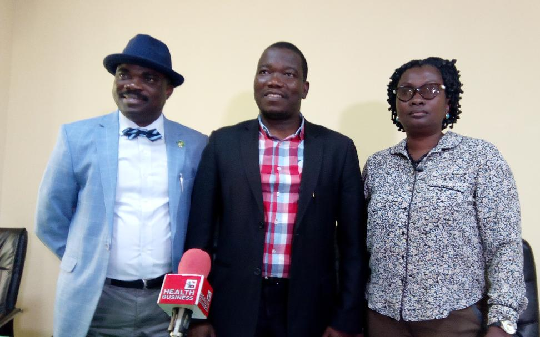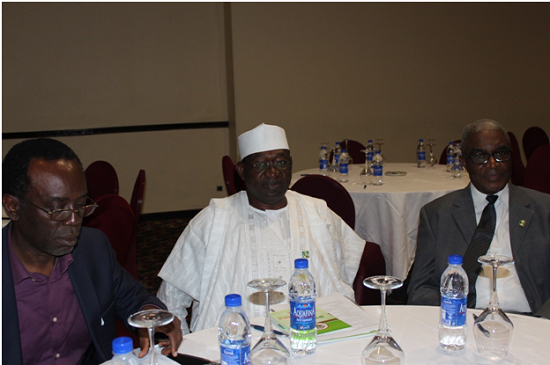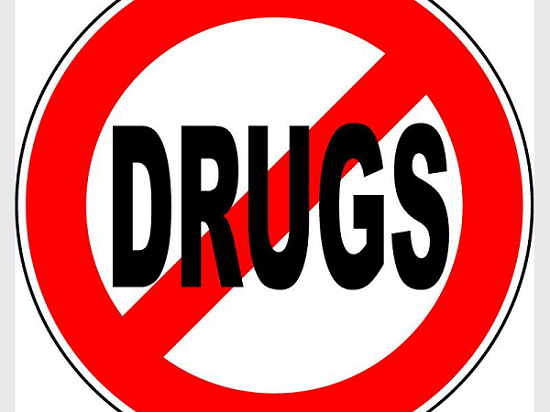Information reaching us on Monday revealed that Prof. Abdulkarim Agunu, Dean, Faculty of Pharmaceutical Sciences, University of Ilorin, Ilorin, Nigeria, died on Sunday, 15 July 2018.
This was also corroborated by the Facebook Page announcement of the President, Pharmaceutical Society of Nigeria (PSN) Pharm. Ahmed Yakasai, noting that he was a diligent and God-fearing Pharmacist, and an active member of various organisations before his departure.

He was a member of the Pharmaceutical Society of Nigeria; National Association of Pharmacists in Academia; Nigerian Society of Pharmacognosy and Society for Medicinal Plants and Natural Products Research.
It was gathered that the amiable dean had stroke penultimate Sunday and was rushed to the emergency ward of University of Ilorin Teaching Hospital (UITH). Just when many thought he was gradually recuperating, the professor unfortunately gave up the ghost yesterday.
Reacting to the news, Pharm. N.A.E Mohammed, registrar, Pharmacists Council of Nigeria (PCN) described his death as sad.
“When I heard that it was stroke, I was optimistic that he would soon snap out of it. Unfortunately, he didn’t. It is indeed sad,” he said
Pharm. Yakasai also has this to say about him: “It is a personal loss to me. Oh this life! I was with him in March this year.”
“On behalf of all Nigerian pharmacists, I write to condole and console his immediate family, Kwara State pharmacists and all for this great loss of excellent and complete gentleman,” he bemoaned.
According to Quadri Omotesho, president, Pharmaceutical Association of Nigerian Students (PANS), the remains of Late Prof. Agunu is to be confined to mother earth today at the Ilorin Cemetary.
Below is the last interview he granted Pharmanews last year.
Agunu Reveals Smarter Ways to Get to the Top in Pharmacy
Born 50 years ago, Prof. Abdulkarim Agunu is the incumbent dean, Faculty of Pharmaceutical Sciences, University of Ilorin (UNILORIN). In this interview with Adebayo Folorunsho-Francis, Agunu bares his mind on how he got his calling as a pharmacist and why he does not see occupying an elective office in PSN as a priority. Excerpts:
Tell us about your educational background and work experience.
I did my A Level at Maiduguri in present-day Borno State. I got admission into Ahmadu Bello University (ABU) in 1985 and graduated in 1989. I did my internship at Maiduguri Specialist Hospital, Borno State; and my NYSC in Zaria. That was how I stayed back in Zaria, Kaduna, where I worked briefly as a community pharmacist before joining the faculty in 1994. I have been in Zaria to date. Although I am the dean of Pharmaceutical Sciences faculty in UNILORIN, I am still on a leave of absence as I have not fully left ABU.
It appears you still have some emotional attachment to ABU?
Well, that is what you get when you leave a place where you grew up with your mates, family and close friends. That, notwithstanding, I have also enjoyed some level of progress here too.
How did you discover pharmacy as a course?
No, I did not discover Pharmacy; I think Pharmacy discovered me. I had always known that pharmacists were very decent people. I am serious about this. I was just 17 but quite conscious about my immediate surroundings. Right from my contact with the first pharmacist I knew, I have always marveled at their level of professionalism. The way he conducted himself, his neatness, appearance and commitment left a lasting impression on me. His name is A.R. Momodu, an indigene of Maiduguri in Borno State. Although he is still alive, he is old in the practice now.
What is your assessment of pharmacy practice in general?
We are progressing. If you take a look at the modern era of community and industrial practice, you will agree with me that it has advanced, compared to what was obtainable in the past.
In fact, in this era of ICT, you will find out that we are on top of our game. Before, you would find people carrying big books to get references; now you get to read everything on your phone or tablet. Even in hospital or community practice, it is the same everywhere.
What do you see as the greatest challenge facing pharmacy practice today?
Challenges are opportunities. And it is global to all professions. Even policy-makers have identified that if you want healthcare to grow, certain things must play out; otherwise we will be doing things the old way. We agree the number is small but the number does not deny the people their right to do what they are supposed to do. When you consider the court cases won by the PCN and the Pharm D approval by NUC, you will agree that all these evolved as a result of challenges in the practice.
Any chances you may leave academic practice one day?
That is very unlikely because I don’t dilly-dally. I am not a politician. Back then, if I had known what I know now, I would have been a professor before 30 years. I have just realised that there are ways you can get things faster. That was why the PCN registrar said that the first one (pharmacy degree) should be the main focus for a while. If this were to be in the past, those (newly graduated) pharmacists may head towards community practice or simply become medical representatives, where they will have access to quick cash. That is no more an issue. Things are in a better shape.
Any regret so far?
Life has taught me that challenges are what bring out the best in every personality. Regret is certainly not one of them. There was a time I was worried about my work here. It coincided with the day my vice chancellor called me and said ‘Look, I have no regret for appointing you. You have totally transformed the faculty of pharmacy.’
If you do good, people will appreciate you. I was impressed. When I got here initially, I was jittery. Having been on the job for four years, I can say that that was all the encouragement I needed.
What was the biggest challenge to achieving your dream?
As I earlier said, challenges make one to be innovative. Many people believe in me. That aside, I cannot really say that I have big challenges like that because I have supporters. You cannot believe that I have never really had anyone come to my office before to challenge me on why I took a particular decision. No! Instead, I come out of top management meetings happier than I was before. That indeed gives me more confidence that people are watching and believe in me. So I just keep on working.
Is there any chance of you taking a shot at PSN office someday?
PSN? No! I am not a politician, please. PSN is probably all about politics and I have not played politics to that level. That said, I am always involved in PSN activities. I just don’t see it as a priority.
What is your advice to young pharmacists hoping to emulate you?
Of course, I will say they need to get their priorities right and remain focused. Just as you asked me about my regret earlier, I would have loved to be a pharmacist that got to the top very early.


















































